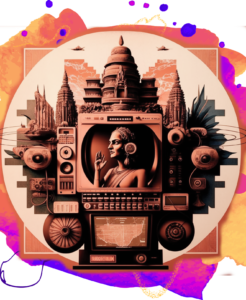The Roots of Dharma
At the very heart of the word ‘Dharma’ is the Sanskrit root ‘dhr’ – which means ‘to uphold’ or ‘hold’, ‘to maintain’, or ‘to sustain’. Dharma is deeply connected to, and in many ways, a subset of ‘Rta’, the cosmic order. It’s about upholding and sustaining the natural harmony of the universe. When we dive into our civilizational texts, we find that ‘Dharma’ transcends the bounds of mere religious practice. It’s a multidimensional concept encompassing duty, virtue, morality, and the right way of living – all aimed at maintaining the balance and order essential to the universe.
And Then Came Religion
The term ‘religion’, derived from the Latin word ‘religio’, originally meant reverence or conscientiousness. It was more about one’s personal relationship with the divine or the spiritual practices and beliefs one adhered to. A western construct that was imported to India mainly during invasions. When this concept entered India, it was often equated with Dharma. However, in its essence, religion as it’s understood today – an organized system of beliefs and practices – differs from the broad, holistic understanding of Dharma in Indian traditions.
The Evolution into Mainstream
Over time, as the world became more interconnected, the term ‘Dharma’ began to be commonly translated as ‘religion’. This translation, however, doesn’t capture the full depth of Dharma. Religion typically refers to a specific set of beliefs and practices, often linked to worshipping a deity or adhering to a particular faith. Dharma, on the other hand, is more about a way of life, a guiding principle that encompasses every aspect of living.
In Conclusion
So, when we say ‘Dharma ≠ Religion‘, we’re acknowledging that Dharma is not just about religious rituals or beliefs. It’s a broader concept that includes ethics, duties, rights, laws, conduct, and a way of life. It’s about maintaining the balance and harmony in the universe and within ourselves.


